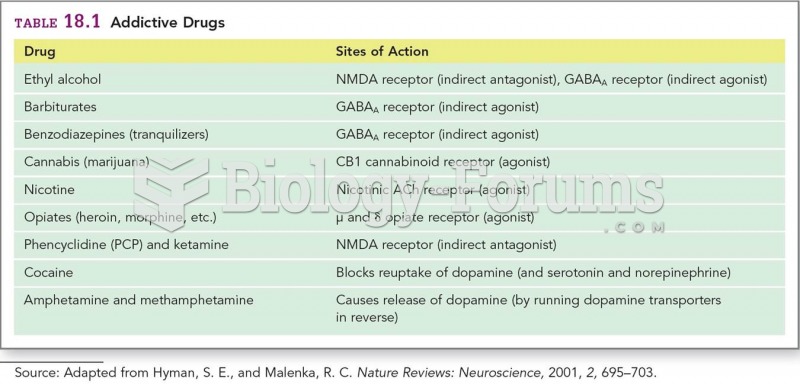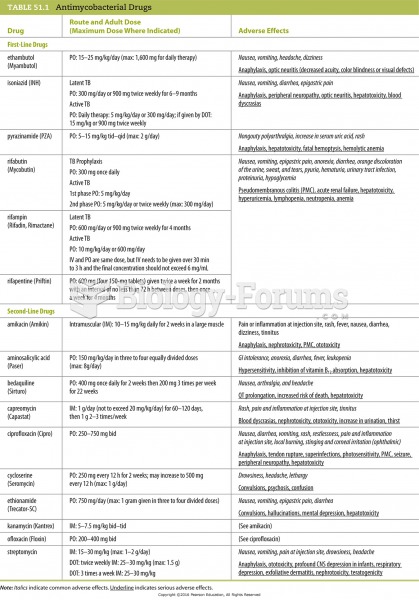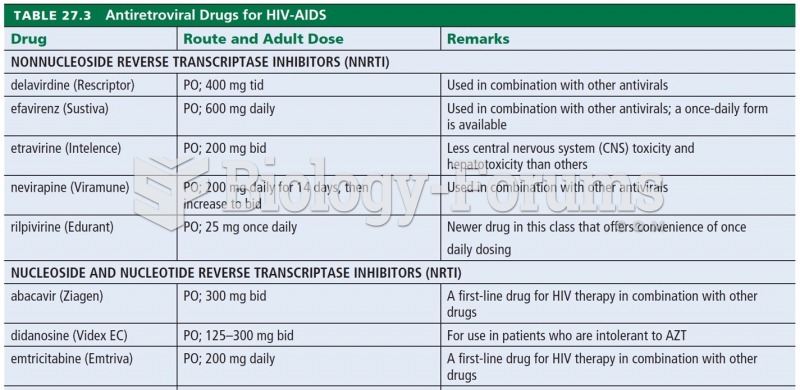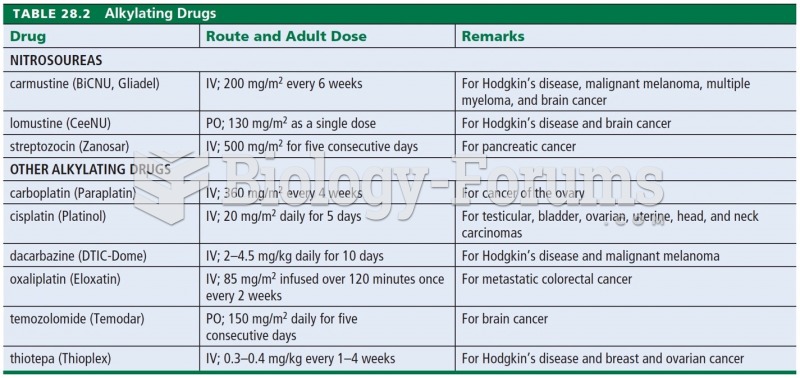Answer to Question 1
1, 3, 4
Rationale 1: All anticancer drugs have the potential to cause serious toxicity. Often, these drugs are given at their maximum dosages to obtain the greatest tumor kill. Such high dosages always result in adverse effects. Because these drugs primarily affect rapidly growing cells, those tissues that are still dividing in the adult are most susceptible to adverse effects.
Rationale 2: All anticancer drugs have the potential to cause serious toxicity. Often, these drugs are given at their maximum dosages to obtain the greatest tumor kill. Such high dosages always result in adverse effects. Because these drugs primarily affect rapidly growing cells, those tissues that are still dividing in the adult are most susceptible to adverse effects.
Rationale 3: All anticancer drugs have the potential to cause serious toxicity. Often, these drugs are given at their maximum dosages to obtain the greatest tumor kill. Such high dosages always result in adverse effects. Because these drugs primarily affect rapidly growing cells, those tissues that are still dividing in the adult are most susceptible to adverse effects.
Rationale 4: All anticancer drugs have the potential to cause serious toxicity. Often, these drugs are given at their maximum dosages to obtain the greatest tumor kill. Such high dosages always result in adverse effects. Because these drugs primarily affect rapidly growing cells, those tissues that are still dividing in the adult are most susceptible to adverse effects.
Rationale 5: All anticancer drugs have the potential to cause serious toxicity. Often, these drugs are given at their maximum dosages to obtain the greatest tumor kill. Such high dosages always result in adverse effects. Because these drugs primarily affect rapidly growing cells, those tissues that are still dividing in the adult are most susceptible to adverse effects.
Global Rationale: All anticancer drugs have the potential to cause serious toxicity. Often, these drugs are given at their maximum dosages to obtain the greatest tumor kill. Such high dosages always result in adverse effects. Because these drugs primarily affect rapidly growing cells, those tissues that are still dividing in the adult are most susceptible to adverse effects. Due to these factors, fatigue, alopecia, and anemia are common. Increased appetite and weight gain are not common adverse effects that occur with anticancer drugs and should not be included in the teaching session.
Answer to Question 2
2
Rationale 1: An alkaloid is a naturally occurring product that prevents cell division.
Rationale 2: Methotrexate (Mexate) is an antimetabolite, which is a drug chemically similar to essential building blocks of the cell. When cancer cells attempt to construct proteins or DNA, they use the antimetabolite instead of the normal building block, thereby disrupting metabolic pathways, killing cancer cells or slowing their growth.
Rationale 3: An alkylating agent chemically binds to nucleic acids and inhibits cell division.
Rationale 4: An antitumor antibody is similar in action to the alkylating agent, but it is an antibiotic obtained from bacteria that has the ability to kill cancer cells.
Global Rationale: Methotrexate (Mexate) is an antimetabolite, which is a drug chemically similar to essential building blocks of the cell. When cancer cells attempt to construct proteins or DNA, they use the antimetabolite instead of the normal building block, thereby disrupting metabolic pathways, killing cancer cells, or slowing their growth. An alkaloid is a naturally occurring product that prevents cell division. An alkylating agent chemically binds to nucleic acids and inhibits cell division. An antitumor antibody is similar in action to the alkylating agent, but it is an antibiotic obtained from bacteria that has the ability to kill cancer cells.







